|
Having enjoyed being a father for many years, upon learning of the impending birth of a grandchild, I looked forward eagerly to that day. (I even considered the shirt I was wearing when I heard the news to be my “lucky shirt.”) Now, about seven years later, I am truly delighted with my two lovely granddaughters, as they approach the ages of seven and three. They are beautiful in every way, but I especially appreciate the beauty of their hearts and souls. This I attribute gratefully to their mother and father and to God in His goodness. As a grandfather, I have been fortunate to spend much time with my granddaughters both before and after the onset of the COVID pandemic. And, especially as a grandfather, I see St. Joseph as an inspirational role model. My view of St. Joseph is of a man who was comfortable and happy remaining, for the most part, in the background. He evidently found no need to be the center of attention. He simply did his work caring and providing for Mary and Jesus and likely for anyone else who came within the ambit of his responsibilities. He worked hard at his craft and traveled as necessary to keep his family safe. It seems that he did not need to say much using words. I see his example as a goal for me as a grandfather—to be there when needed, to try to promote the health, safety and general well-being of my wife, children, and grandchildren and otherwise—specifically as to grandchildren—to remain when possible in the background, with support and occasional contributions to their physical, spiritual and psychological educations. But being a grandfather is far from only being work and encompassing responsibility. It is mostly about the joy and wonder of being together with grandchildren—to see firsthand the development of human beings gaining strength in mind, body, and soul. I imagine that St. Joseph was pleased but often surprised by the growth and development of Jesus as a child, young boy, and young man. With St. Joseph’s likely experience in mind, I can try to recognize and realize that growth and development is not necessarily predictable. I am constantly surprised by what my granddaughters can do and what they can express in words that seem beyond their years. They are most entertaining and one of a grandfather’s delightful duties is not only to be entertained but also to be able to join in the games and play activities sparked by the imagination of young children. The great value of having the life of St. Joseph as a guide is that there is value in simple presence—being there, experiencing life with young persons, seeing the world through their eyes, noticing and appreciating the moon, stars, or sun, or the dog or cat on the street. Being with grandchildren is akin to what I have often thought about going camping—it makes simple things complicated and complicated things simple. As I anticipate spending more time with my granddaughters, I continue to look to St. Joseph for guidance. As part of my daily prayers, I ask St. Joseph for his intercession for all of us. From his unique role in God’s plan, St. Joseph is well-situated to be an advocate for those of us still on our journeys. What better team could we find to assist us in this manner than our Blessed Mother Mary and St. Joseph? They were holy persons, who during their lives on earth experienced a full range of joys, sorrows, and challenges, and are thus in a great position to sympathize and empathize with us and to advocate for us as we try to work our ways through the many opportunities presented to us to be of service to one another. **This post is part of our series on Fatherhood to celebrate the Year of St. Joseph. To learn more, please click here. For more resources on Marriage and Family, please click here.
0 Comments
I am grateful for the occasion to share just a few reflections on my discernment journey and priestly ordination during the pandemic, the “COVID class” of 2020! It was about one year ago—March 2020—with less than two months before graduation from St. Mary’s Seminary in Baltimore, MD and ordination scheduled for June when those plans began to change. Like the many high school and college students preparing for graduation, my deacon classmates and I (and the rest of the seminary) were sent home to complete our coursework alone online. Like the many engaged couples preparing for their summer weddings and receptions, our priestly ordination dates were postponed and receptions cancelled. While trusting in God’s grace and purpose, how could I help but feel at least a little disappointed and even frustrated? And yet, therein lie some important lessons God wanted to show me about the life we are each called to live. Every vocation—life’s path and purpose—begins by accepting our way is not always God’s way, and our time is not always God’s time (Isa 55:8-9). And yet, I’ve slowly recognized a great freedom in that fact. A vocation is not about “planning out” your life, or making sure things happen the “right” way. Life does not follow a predetermined script. A vocation is not an intellectual puzzle we work on and hope to “figure out” (or else fail…), but a stepping out in faith day-by-day. Vocation is more about letting go of the controls to be free enough to move in the direction God beckons. A vocation is always a dynamic response to God’s call from a place of freedom and love. And so, while a vocation does involve making a free choice, it’s not about calling the shots in life or predicting the future, but trusting God with the simple question, “where and what next?” Due to the COVID lockdown of 2020, I realized the date and circumstances of my ordination were beyond anyone’s control. Some suggested having small, private ordinations so we would become priests “sooner,” even if we still couldn’t yet go out and serve in parishes, but respectfully, I personally disagreed with that idea. The pandemic re-affirmed my conviction that we were becoming priests for the people of God, not for ourselves. Compared with the physical and emotional toll of the pandemic, the waiting game was an easy burden to bear. The background of the pandemic created a new context to reflect on what shape my life and ministry might take. In our society’s fixation on “finding our best selves,” the gospel-centered vocation acknowledges that “whoever loses his life for my [Jesus’] sake will find it” (Mt 10:39). Vocation is part of our personal participation in the great “mystery of faith,” the “Paschal Mystery” of Christ’s death and Resurrection the Church celebrates most powerfully in Lent and Easter. We cannot experience the true Jesus without both his Resurrection and Cross, and so every authentic vocation will have both its cross (struggle and sacrifice) and its resurrection (joy and victory). However you discern, expect your vocation in life to feel like both at times. Amidst the hardship of our world, a small taste of the patient suffering of the Cross leading up to my ordination turned out to be a small but precious gift not to take for granted. For months during quarantine, I watched medical professionals and other essential workers care for the sick and deliver basic needs—the corporal works of mercy—on the local, national, and international stage. As a deacon waiting in the wings to be deployed to a parish, I felt primed to be sent and make an impact. But all I could do was stay home and pray the Liturgy of the Hours. That summer I did not feel heroic or “essential.” Having been fed a steady diet all through seminary of “the Church needs you!”, I had to accept it wasn’t my moment to be a hero or an influencer. My call was behind-the-scenes mission support, not leading the charge on the front lines. Following Jesus’ instruction to “watch and pray” (Mt 26:41) as others experienced trial and suffering in hospitals and homes challenged me to rid myself of any pretensions of being a priest as being God’s biggest hero. Vocations—religious or secular—motivated by the muscular desire to save the Church/world and solve Her problems almost always end up hurting people in strongarmed attempts to fix whatever they perceive as broken. Before the Cross, there are times all we can or should do is “behold” the brokenness and hurt (Jn 19:26). On the eve of ordination, that forced inactivity was excruciating, but it also drove home a humble admission behind every vocation: I need God more than God needs me. The Cross is essential to Jesus, and beholding Jesus in the sick and suffering, God became more essential to me. To “behold” is not to evade responsibility, but to see that our suffering does not go unnoticed and unredeemed. Not coincidentally, it is on the Cross that we truly see Jesus as our eternal High Priest, the model of priesthood, who is willingly sacrificed for the redemption of our sins. And so, the experience of being ordained a priest during the pandemic, while full of spiritual and personal challenges, also became the occasion for greater reflection on my identity, vocation, and mission. The delay was not lost time, for any time spent with Christ in prayer or service is only counted as gain. I was ordained a priest of Jesus Christ on August 22, 2020. Behold and follow the Cross, and who but God knows where it may lead! For more resources on Vocational Discernment, please click here. For more resources to accompany you through the COVID-19 pandemic, click here.
This Lent looks a little different than it has in past years for many reasons. With a little boy starting to walk, it feels like things are changing fast at times and very slowly at others. I’m looking towards speeding things up to get to new milestones like running and talking, but also praying time can stand still enough to savor precious moments and little giggles. In Lent now, we are waiting for Easter and likely wanting to speed through this time of personal reflection, penitence, and prayer. Maybe if we try to slow down and take a moment to reflect, we’ll discover some time we can put into our relationship with God in a meaningful and intentional way.
This Sunday marks the Second Sunday of Lent and there are some really poignant readings to note for our hardened selves. I think they all tell of a hope and light at the end of the tunnel for us in this dark and restless time. The second reading especially tells us to not give up because God has already provided: Brothers and sisters: If God is for us, who can be against us? He who did not spare his own Son but handed him over for us all, how will he not also give us everything else along with him? Who will bring a charge against God’s chosen ones? It is God who acquits us, who will condemn? Christ Jesus it is who died—or, rather, was raised-- who also is at the right hand of God, who indeed intercedes for us. (Rom 8: 31b-34) This line, “If God is for us, who can be against us?” tells us so much about our God. He is always on our side, no matter what. If God is for us, we can build up a broken relationship with him. If God is for us, we can consider our sins in the Sacrament of Penance and be reconciled. If God is for us, we can slow down and take a moment to breathe in and out in mindfulness. If God is for us, we can have the strength to carry on through this pandemic, perhaps alone physically, but never truly alone. We are never truly alone or abandoned because at the end of this Lenten tunnel, Christ is there waiting for us with open arms and a tissue to wipe our tears. There is beauty in the waiting, and we’ll probably regret it if we don’t allow ourselves to vulnerably open our hearts and our lives to Christ. So how can we build our relationship with God? How do we prepare our hearts for Easter, while still savoring this waiting and dark time before Christ comes? When we are fearful, where can we turn? When we feel exhausted and worn out, how do we go on this Lent? Through prayer. I teach my students about prayer during Lent because it can be the absolute best tool we have as Christians. Saint Vincent Pallotti knew this to be true, saying, “The best method of private prayer is that which the spirit of the person finds easiest and most fruitful.” He totally understands us! In his wisdom, Pallotti sought to humbly serve God through his actions and be an apostle journeying with others and teaching them about God’s eternal Love. Private prayer is so important. It can be as simple as we want it to be or as complex. We can talk to God out loud, in our hearts, through journaling, or in memorized prayers, but private prayer is essential to our spiritual lives. In the moments in which you want to slow down, try praying to God. Each time you think about the next thing that is coming and how you just need to get through it, pray. Ask God to remove your impatience and replace it with humility. Humbly putting ourselves aside during Lent can be a fruitful way to grow closer to God. Intentionality and a few personal moments are the only things we really need this Lent, for if God is for us, who could be against us? For more resources to guide you through your Lenten journey, please click here. For more resources on prayer, please click here. “Remember the days past when, after you had been enlightened, you endure a great contest of suffering. At times you were publicly exposed to abuse and affliction, at other times you associated yourselves with those so treated. You even joined in the sufferings of those in prison and joyfully accepted the confiscation of your property, knowing that you had a better and lasting possession. Therefore, do not throw away your confidence, it will have great recompense. You need endurance to do the will of God and receive what he has promised. ‘For, after just a brief moment, he who is to come shall come, he shall not delay. But my just one shall live by faith, and if he draws back I take no pleasure in him.’ We are not among those who draw back and perish, but among those who have faith and will possess life.” -Hebrews 10:32-39 We are living in an extremely tumultuous time. For over a year, a virulent sickness has swept over the world and caused havoc with our health, our economies, and the very way we relate to one another. It has separated us from friends, co-workers, extended family, and our church community, to name a few. In battling its transmission, we have been forced into isolation—severely limiting gatherings, celebrations together, and even sharing hugs. We have been stretched beyond our normal mode of living and the equilibrium of our lives has been disturbed, with no end clearly in sight. On top of all this, we have experienced political and social unrest – polarized groups rising against one another, causing great division instead of building unity. For any individual, these circumstances could easily defeat us and have us succumb to despair. I think of the Marty Haugen song many of us sing every year during Advent: “For you, O Lord, my soul in stillness waits, truly my hope is in you.” It resounds in my mind and heart as we traverse through such unsettling circumstances. Amidst all the unknowns and unrest, I have witnessed a beautiful vision that overrides all the devastation of the circumstances we are in. I have seen people sacrifice to care for others and people coming together to celebrate the joy of life in trying situations. I have witnessed God living and walking among us through the selfless individuals choosing to stand tall in faith and do all things in love. As Christians we are taught “God is love.” We were created out of love, for love. We are part of God’s great creation and we belong to Him. He guides, instructs, and protects us always. What a magnificent testament to hope in! We pray in our Creed: “I look forward to the resurrection of the dead and the life of the world to come.” This is part of what we profess at Mass before we enter into the liturgy of the Eucharist – which is the source and summit of our faith. We receive the Body, Blood, Soul and Divinity of our Lord to nourish us in body and spirit. This profession of faith, this gift of communion, allows us to walk through all the adversities of life as joyful people who understand our hope lies not in this world but in heaven, forever. This living hope comes from being nurtured by the stories from Scripture, being taught prayers and devotions, receiving the sacraments of Reconciliation and Eucharist frequently, singing hymns of praise and thanksgiving, and practicing acts of kindness daily. What an ironclad defense we have against any evil that would afflict our body or soul! How beautiful it is that as Christians we can be united together in faith wherever we are. This is how I have remained steadfast in hope and overcome fear during these trials that continue to badger us. Surrounding myself with pictures of the Holy Family, the saints, the crucifix, listening to Christ-centered music, praying novenas and prayers, attending Mass often, and sitting in the quiet and listening for God to speak to me are all ways I actively participate in being a person of hope. Even more simply, just keeping my home clean and neat makes it a peaceful sanctuary where I can experience God’s presence. I have no control over the things of this world that loom large over me, but that is okay. As long as I adjust my spiritual armor and remain grounded in Christ, I have every reason to walk in hope, joyously, no matter the circumstances. My husband I adopted the habit of praying Saint Patrick’s Breastplate each morning before going out into the fray and it has born much good fruit in our lives. I offer it to you as another tool to assist you in the battle against evil. We are children of light, born of love and destined for heaven. We belong to Him. He made us a community and all around the world, individually and in groups, we profess our faith boldly, we share His message of love constantly, and we support one another in solidarity of His kingdom. It is our job to remain in Him and He will supply all the grace needed to walk tall in hope. As St. Teresa of Avila said: ‘God withholds Himself from no one who perseveres.’ For more resources to guide you through the COVID-19 pandemic, please click here. For more resources on prayer, please click here. It’s hard to believe that COVID-19 began to take hold of the Mid-Atlantic region of the United States just two weeks after Ash Wednesday 2020. As we approached Holy Week last year, dry jokes abounded as to whether or not we had to continue to give things up during Lent as COVID-19 had already forced us to give up so much. Well, those jokes have returned a year later as Ash Wednesday is just around the corner and the pandemic is still very much a reality in our lives. Lent is a period of the Catholic Big Three: prayer, fasting, and almsgiving. This preparatory and penitential season helps to prepare us for the glory of the Resurrection. Most Catholics know the drill: you give something up for Lent (and hopefully take something on as well) as you have Easter Sunday circled on your calendar. But last year threw us all for a loop. Used to giving up chocolate or swearing, we were forced to give up worshiping in Church, seeing loved ones, going to school, and so much more. In the months since, almost every person knows someone who has contracted or even died from the COVID-19 virus. Though Lent ended on Easter in 2020, it feels as though it still hasn’t quite ended. We’ve abstained from holiday gatherings, birthdays, and so much more than we’d ever planned, even during the Lenten season. Lent, though, is the perfect lens through which to view the COVID-19 pandemic. Even during this penitential season, we don’t forget the glory of the Resurrection. Yes, the “A-word” and the Gloria are omitted from the Mass. Sure, we focus on the preparation and the penance, but we still receive and glorify our Lord. Even though we are without so much now in the Lent-like COVID-19 pandemic, we still praise the Lord. The last line of Psalm 150 reads, “Let everything that has breath give praise to the Lord.” Not just during the liturgical seasons of Ordinary Time, or Christmas, or Easter, but at all times, everything with breath should praise the Lord. This continues even now, with so much going wrong in our world. With so much suffering and pain—from which none of us are immune—there is still reason to praise the Lord. Baptisms and First Communions still occur. Marriages are still celebrated. Four of my closest friends were married this past summer—which brings new context to the promises of commitment in sickness and health. Even when there has been suffering, God has still managed to bring good out of it. When my own grandfather passed away in October, I was able to spend the last few days before his death with him. This was a time whose memory I cherish, and time I’m not sure we would’ve gotten if he hadn’t gone to his eternal rest. As I’ve gone through my own sickness over the last few months, I’ve made Psalm 150 my mantra of sorts. My life hasn’t been perfect, but God has ordained it and he has sustained it. He has given me breath and life, and for that I praise him. As Matt Maher says in his song Alive and Breathing, “Let everything praise the Lord, in the working and the waiting…in the dying and the rising, let us praise the Lord!” With Lent coming up, and COVID still wreaking such havoc in our world, let everything that has breath praise the Lord! For more Lenten resources, please click here. For more resources to help you navigate COVID-19, please click here.
For the last two years, my parish has hosted a virtual Lourdes pilgrimage led by the Lourdes Volunteers. This prayerful experience went beyond my general understanding of Mary’s 18 apparitions to St. Bernadette in southern France during 1858. By attending this virtual pilgrimage, I felt the Virgin Mary’s call to learn more about her, and through her, to grow closer to God. A few months after attending my first virtual pilgrimage, I completed a Marian consecration with several friends. Thankfully, the team of volunteers with the Lourdes Volunteers is still hosting virtual pilgrimage experiences via broadcast on the Feast of Our Lady of Lourdes on February 11. We often think of the physical healing miracles at Lourdes, but emotional healing is also an important part of the message of Lourdes. When I attended these virtual pilgrimage sessions, the lessons of sacrifice that Our Lady shared with St. Bernadette stood out to me most. “I do not promise you happiness of this world, but of the next,” Mary said to St. Bernadette. Mary reminds us that uniting our sufferings to Jesus’ sufferings on the cross is where we find true joy. I don’t know about you, but that’s a lot easier said than done! Prayer is transformative and plays a huge part in helping get us through our earthly sufferings. Choosing love helps make sacrifice endurable. St. Bernadette taught us that suffering passes, but having suffered remains eternally. The physical and emotional sacrifices of this world are temporary compared to the glory of everlasting life in heaven with God. St. Bernadette famously said, “One who loves does not notice their trials, or perhaps more accurately, is able to love them. Love without measure.” At first, this not noticing of trials seems idealistic. But then I realized that our trials are made more bearable because of our love for another. I think of how mothers go through physical pain and exhaustion for their newborn babies, or how a father stays up at night with a sick child. I think of how husbands and wives sacrifice individual wants for the needs of each other. I think of how a friend puts their own struggles aside to help another friend going through a deep, rough patch. We can look to Mary and Jesus as examples of how to love while enduring sacrifice. “She spoke to me as one person to another,” said St. Bernadette of Mary. This conversational nature of Mary and St. Bernadette’s relationship shows us that we can easily speak to her and ask for her prayerful intercession as our mother. At Mary’s appearances to St. Bernadette, she revealed herself to be the Immaculate Conception. By allowing God to forgive us of our sins and conduct his work inside us, we are becoming more “immaculate” witnesses to God in the world. Mary emphasized the need for penance and prayer, not just for ourselves, but for the healing of all. While our travel is limited during this Covid-19 pandemic, we can still embody St. Bernadette by imagining the grotto and going there in our hearts to make a pilgrimage. Our Lady of Lourdes, pray for us. St. Bernadette, pray for us. As a Catholic of African descent, I am honored and privileged by this unique opportunity to discuss the beautifully diverse Catholic Church throughout the world, the significant contributions that those of every ethnic background have made in building up the Body of Christ, and how we can arrive at racial healing and reconciliation. The Catholic Church is made up of the faithful of every ethnic background, the young and old, both male and female, and several distinct cultural settings. In other words, we Catholics come from every realm of the human experience, and are united in our baptismal fidelity. As a black Catholic, my religious heritage spans all the way back to biblical times, including when Saint Philip the Apostle brought the Good News of Jesus Christ down into Ethiopia (see Acts:8:26-40). Both African and African-American saints, including those in this extensive list from Catholic Online, have enriched the Church for nearly two millennia. Likewise, the modern era features some black candidates for sainthood, including those appearing in the United States Conference of Catholic Bishops’ webpage titled “On the Path to Sainthood: Leaders of African Descent.” I encourage everyone of good will to read through the biographies of the figures listed in both of those sites, in order to gain a greater appreciation for the manifold ways that they have built up the Body of Christ, per the Apostle Paul’s Letter to the Romans: “For as in one body we have many parts, and all the parts do not have the same function, so we, though many, are one body in Christ, and individually parts of one another” (Romans 12:4-5). The calendar year 2020 brought numerous challenges to those of every faith, both in the United States and around the globe, as the world confronted the COVID-19 pandemic and matters of racial discord were brought to the fore in the United States. I think often of how far we have come as a nation in terms of fostering peace and harmony between people of every ethnic background here in the United States. For instance, my father, Charles McClain, Sr., who was born in Durham, North Carolina, in 1936, and lived under segregation well into his early adulthood, probably did not fathom during his youth that he would one day see three of his sons (my brother Eric, my brother Jaris, and me) go on to marry white women. We can attest that this is, in a way, a fulfillment of Rev. Dr. Martin Luther King, Jr.’s, affirmation from his “I Have a Dream” speech of August 28, 1963, declaring that “I have a dream that that my four little children will one day live in a nation where they will not be judged by the color of their skin, but by the content of their character,” and that “one day… little black boys and black girls will be able to join hands with little white boys and white girls as sisters and brothers.” Yet, as with many quests for justice, this is easier said than done. However, since we profess our faith in Jesus Christ, we have inspiration from the Gospel, since Jesus commands (not suggests) to “love your neighbor as yourself” (Mark 12:31), and to “do to others as you would have them do to you” (Luke 6:31). To facilitate healing and reconciliation, we must have best intentions and give others the benefit of the doubt when they are striving to learn more about their brethren of other ethnic backgrounds and cultures. As such, every endeavor in this regard should be marked by true charity and prayer prior to the initiation of any sociopolitical engagement, all of which must be informed by the Gospel and its imperatives if we are to call ourselves disciples of Jesus Christ. For this reason, I urge the faithful to read books on racial reconciliation and healing from a Christ-centered perspective. A couple of books that come to mind are Joseph Pearce’s Race with the Devil: My Journey from Racial Hatred to Rational Love (TAN Books, 2013) and the late Fr. Ubald Rugirangoga’s Forgiveness Makes You Free: A Dramatic Story of Healing and Reconciliation from the Heart of Rwanda (Ave Maria Press, 2019). Of note, Fr. Ubald passed away from complications related to COVID-19 on January 7. You can read more about his life and ministry in this tribute provided by Ave Maria Press. I love teaching my children and students about being an African-American Catholic, just as I enjoy learning about my wife’s Irish-American Catholic heritage and many other avenues of cultural diversity within the Church. Let us draw each other to embrace the sacramental life and the Church’s timeless moral standards in order to reinforce the Body of Christ. May God bless you.
The family is the environment in which we learn to relate to others, where we are cared for and loved. But it can also be a laboratory for sadness, bruising, and wounding. Moments of grace separate one from the other. Mere humans living together in close proximity in the home, sharing the nitty gritty of life, is full of all kinds of challenges! How many times do we have a misunderstanding and have the sense to apologize? Dealing with people is messy business and hurt happens. It is heroic to operate in the grace of the Holy Spirit to ask forgiveness when we hurt one another. The simple ability to look past our own feelings and see how we impact others – that is life-changing behavior. “I’m sorry that what I did was hurtful to you. Please forgive me”—this is humility, and when we operate at this level within our family, we can change the world. As I see it, the two most important virtues of a holy family are patience and forgiveness. Thank goodness perfection is not required, just steadfastness.
The readings from the Mass for the feast of the Holy Family, which we celebrated on the first Sunday after Christmas, are beautiful reminders of how to behave and interact with each other in our families. “God sets a father in honor over his children; a mother’s authority he confirms over her sons. He who honors his father atones for sins; he stores up riches who reveres his mother. He who honors his father is gladdened by children, and when he prays he is heard. He who reveres his father will live a long life; he obeys God who brings comfort to his mother. My son, take care of your father when he is old; grieve him not long as he lives. Even if his mind fail, be considerate with him; revile him not in the fullness of our strength. For kindness to a father will not be forgotten, it will serve as a sin offering-it will take lasting root.” Sirach 3:2-7, 12-14 This passage expounds on the fourth commandment because Jesus wanted us to understand the importance of family as the cornerstone of society. In her acceptance speech for the Nobel Peace Prize in 1979, Saint Mother Teresa said, “My prayer for you is that truth will bring prayer in our homes..[and] we will begin to love. And we will love naturally, we will try to do something. First in our own home, [then the] next door neighbor in the country we live, [then] in the whole world.” In our progressed world, we think of evangelization and mission in terms of global work, but we cannot achieve spreading the faith if we do not practice in our own families. Colossians 3:12-21 gives us further practical instruction on how to relate to one another. “As the chosen of God, then, the holy people whom he loves, you are to be clothed in heartfelt compassion, in generosity and humility, gentleness and patience. Bear with one another; forgive each other. The Lord has forgiven you; now you must do the same. Over all these clothes, put on love, the perfect bond. And may the peace of Christ reign in your hearts, because it is for this that you were called together in one body. Always be thankful. Let the Word of Christ in all its richness, find a home with you. Teach each other, and advise each other, in all wisdom. And whatever you say or do, let it be in the name of the Lord Jesus, in thanksgiving to God the Father through Him. Wives, be subject to your husbands, as you should in the Lord. Husbands, love your wives and do not be sharp with them. Children, be obedient to your parents always, because that is what will please the Lord. Parents, do not irritate your children or they will lose heart.” What makes the family so extraordinary is all the goodness that can come when we learn to love. We die to self in saying we are sorry for our offenses. We grow in virtue when we focus on the needs of others instead of ourselves. A quote often attributed to G.K. Chesterton states, “The most extraordinary thing in the world is an ordinary man and an ordinary woman and their ordinary children.” God has set an incredible task before us – to love the people in our family through our actions and our attitude. This is the heart of radical evangelization. And it will change the world! For more resources on marriage and family, please click here. Baptism is one of my favorite subjects to teach my Pre-K students. Often, it is the first time the boys and girls really get a chance to learn about what Baptism is. Other times, it provides them a chance to share about their own sacramental experience or that of someone they know. Throughout the unit, everyone is given a chance to celebrate being part of God’s family in the Church. Learning about Baptism is a PreK standard in their catechesis, and we begin January by learning about Christ’s Baptism in the River Jordan. We learn that it was John the Baptist who prepared the way for Jesus and offered a baptism of repentance. John came before Jesus telling the people to, “’Prepare the way for the Lord!’ preaching a baptism of forgiveness of sins” (Mk 1:3-4).
Like the people whom John baptized and preached to, we likely are feeling in need of renewal. As we welcome this new year, we can also be renewed and cleansed from such a challenging year spiritually, emotionally, and physically! We can start fresh this year, and hear John, “a voice crying out in the desert.” For me, 2020 often felt like a desert. At times, I felt as though my thirst for the Eucharist was unbearable since going to Church was unsafe. Other times, it seemed like I was stranded alone with a new baby and deserted by any additional help. This year has taken its toll on so many, in so many ways, and everyone’s desert has been hard. This pandemic has left many of us yearning, thirsting, and begging the Lord for renewal. Let us consider putting on a new self in renewing our own baptismal promises, participating in the Sacrament of Reconciliation, and entering 2021 with clean and refreshed hearts! My son was welcomed into the Church through Baptism in September. We followed the safety restrictions, had an option for virtual participation, and were able to celebrate our little child of God being cleansed of original sin. It was a humbling and beautiful Mass and Baptism. While I was holding my son, Vincent (named after St. Vincent Pallotti), I could feel God's presence and see it unfolding before my eyes. For a moment, my desert had become an oasis. Life, water, joy, gratitude, my little boy’s squeals, and love were present there with us. I knew there and then that my son had been renewed and would in turn bring some renewal into our lives. Just as my son’s baptism brought refreshing hope into my family’s life, the Lord’s Baptism can bring renewal and hope into our lives as Catholics. At the Lord’s Baptism, he received his mission. May we continue to reflect upon our own mission as disciples in this upcoming year. Our hearts are yearning to be cleansed and renewed amidst our many deserts. Like my students learning about Baptism for the first time, let us engage our hearts and open our ears to the Word anew. Like my son’s Baptism showed me an oasis amidst a desert storm, let us find joy in our own Baptisms this year. Here is a prayer to leave you with as we begin the year anew: Heavenly Father, as a new calendar year begins, cleanse us with new hope and give us nourishment in your Son, Jesus Christ. Wash away our sadness, pain, and fears and help us to know your love throughout this upcoming year. Help us prepare the way for you to come into our hearts, oh Lord. Turn our own desert into oasis. In Jesus' name we pray, Amen. Every year I ponder why we put such great importance on December 31st—why we celebrate the close of one year and herald in the new year with such fanfare. I never have really been one to make such a ‘to do’ about celebrating New Year’s. Isn’t it simply another day on the calendar, the turning over of a number? One day rides into the next on the 31st of December no differently than all the other days of the year. But we have made it a big holiday – a day to reminisce over the past 12 months and to celebrate the beginning of a fresh new calendar year – and we believe in all of its possibilities. Many of us recommit to our mission in life or to a specific goal. With the encouragement of others, we resolve to some greater aspirations and get all fired up about them! In our Christian walk, it is essential that we take stock of where we are and what we have done, as well as how we can make improvements, grow in holiness, love more deeply, and share the Gospel message more intentionally. We do not have to only do this examination and recommitment on New Year’s Eve: we are called to do this daily. A great time to do it is before we lay ourselves down to sleep. And then each morning, we can arise with the zeal to do our best, be our best in the new day we have been given. New Year’s Eve traditions are wonderful, but let us daily recall our actions and thoughts and celebrate the close of another day to be alive, to walk and talk as a joyful, purposeful child of the Savior, and then arise each morning to usher in a fresh new day to live and work and grow in our mission to build God’s kingdom on earth. About 3 months ago, as we were continuing to navigate life in this pandemic, I committed to participating in daily Mass with my husband in order to become a bolder Christian, a more loving wife, a more compassionate mother, a more diligent worker, and a more available servant to my neighbor. I honestly see great fruit in these areas because of receiving Jesus daily in the Word and in Sacrament. I have experienced added gifts of grace that help me become a better child of the Most High! During this time, I awoke every morning between 3:00 and 3:45am, just wide awake and raring to go! After a week of this happening, I realized that God wanted something of me. So now I read Scripture and have a nice quiet prayer time, while the rest of my household is asleep. I would not have been able to do this five years ago, or 10 or 20 or 30. I was in the trenches raising six kids and working and managing an extremely busy household! But grace abounds at this time in my life and it amazes me how good God is! This personal reflection, prayer, and evaluation are a day-by-day occurrence, not just practices that occur once a year at the turning of the clock to January 1st. I encourage each of you to enjoy your New Year’s Eve reflection and New Year’s Day celebration while also recognizing and committing to the importance of reflecting on what is past and committing to what is ahead as a daily activity. We are each here for a purpose. Together, with the graces God bestows, we have much to do to build His kingdom. So, one foot in front of the other, one sunrise and one sunset at a time, let us celebrate each day with the zeal of the first disciples – and God’s will most surely will be done on earth as it is in heaven! Happy New Year, happy new day! “God, examine me and know my heart, test me and know my concerns. Make sure that I am not on my way to ruin, and guide me on the road of eternity.” Psalm 139:23-24 It seems a gross understatement to say that 2020 has brought on more than just a horrible virus. Our inability to visit loved ones can bring on a wave of loneliness, sadness, despair, or depression. If you have a family, the loneliness is a bit less oppressive than if you are single, but it is still there. Your children cannot go play with their friends as freely and your couple friends aren’t able to come over for dinner. If you are single, your options are even fewer. Regardless of your state in life, however, loneliness has not discriminated in this grueling year. With the promised vaccine on its way, there is room for hope. However, I think it is important to reflect on the movement within our souls this past year. With all of our normal routines and plans taken away, we’ve been stripped to just ourselves or our immediate families. We’ve even been stripped of the sacraments, the Mass, and the community that comes along with parish life. Day after day, many of us have faced the walls of our home and not much beyond that. During this time, we have no doubt experienced bouts of loneliness. I know I have. But has there been an invitation to solitude in there as well? What is the difference between solitude and loneliness? Loneliness is a very human experience of feeling isolated and desiring community. It is not as easily fixed as it used to be, given all of the current restrictions. However, solitude is an invitation from Our Lord to be drawn into a particular relationship with Him--to be focused only on Him without distractions. If courageous enough to accept this invitation (I find myself coming up with excuses to pretend that I don’t hear this invitation), we may find an even deeper restlessness. As St. Augustine famously said in Book 1 of the Confessions: “Thou hast formed us for Thyself, and our hearts are restless till they find rest in Thee.” This restlessness may seem exhausting, especially this year, but in reality it is a great gift. We are made for rest in Christ, and so this restlessness drives us to find Him. Restlessness, however, cannot be truly recognized if we do not accept this invitation to solitude. We may feel it knocking on our door and choose to ignore it with various activities or try to cure it some other way. But its remedy is only found in relationship with Christ, who waits for us in solitude--in the quietest place of our hearts. Some ways that have been helpful for me in growing more comfortable with entering into solitude are finding 15-20 minutes before I go to bed to reflect with God about my day--an examination of conscience of sorts. I think about the parts of my day where God was calling me into deeper relationship-whether that be in a conversation with a friend, 15 free minutes I had where I could have said a rosary but watched YouTube instead, etc. I will imagine that He and I are having a conversation at my kitchen table (it may sound odd, but try it!) and reflect with Him about what happened that day. Most importantly, though, is spending those few minutes before bed in complete silence. This may look different depending on your state in life, but I have found that the silence is what allows me to enter into that solitude with Christ. Once this becomes a regular habit, the loneliness we experience seems more tolerable, because we know that we can enter into solitude with Christ whenever we want to. He becomes our refuge, and we can talk with Him whenever we like. As I look back on 2020 and look forward to 2021, I hope to more readily recognize when Christ is calling me into this particular relationship and to respond willingly. If we find ourselves lonely and aching for community, I hope we remember that the key to healing our loneliness and restlessness is found in solitude, and the invitation to rest in this solitude with Christ is a standing one. Question for Reflection: What are some ways we can grow in our comfortability with solitude or that we can respond to God’s invitation to deepen our relationship with him during this time? For more resources on self-care during this time, please click here. A lyric of one of my favorite Advent hymns, “O Holy Night,” shares the simple yet profound posture in which we are called to enter into the Advent and Christmas seasons: on our knees. Perhaps many of us already find ourselves there—either out of reverence or sheer exhaustion. For many, the year 2020 will forever be overshadowed by confusion, darkness, anxiety, fear or stress due to the COVID-19 pandemic. Perhaps you, like me, have just wanted it all to be over. We may feel tired of the masks, the canceled events, the physical distance from our friends and loved ones, uncertain job security, or the fear for our health and for those around us. Our hands are raw from sanitizer. Our hearts are raw from stress and confusion. Pandemic fatigue is real. Is this exhaustion, stress, and confusion similar to what the Jewish people felt as they traversed to their hometowns for Caesar Augustus’ census two thousand years ago? “Where is the Savior foretold by the prophets?” they must have thought. “Where is the king who would overthrow all oppressors and establish God’s kingdom forever? Where is God? And why does he seem silent?” For God’s Chosen People, continued faith and hope must have been a hard choice. For God’s chosen people, continued faith and hope is a hard choice. And it is precisely when we are caught up in our feelings of negativity, sadness, or desolation that we fail to see God at work. Too consumed by looking inward, we forget to look up and see the star. It is precisely for this reason that hardly anyone attended the most important event in all of human history: the birth of the Savior of the World, a child born quietly in the recesses of Bethlehem. So where do we find ourselves? Are we grumbling that God has not done enough to fix our broken situation? Are we stressed about the logistics to get our family to the census? Are we awaiting our own version of the Messiah, making our own golden calves? Do we look back longingly, preferring the slavery of Egypt to the wilderness? Or have we abandoned our relationship with God altogether? Finally, are we on our knees? Mary models this posture with her very life. I cannot help but imagine that she received the news from the Angel Gabriel on her knees. “How can this be?” she asked, greatly troubled at what was said in the midst of the holy and miraculous encounter. Her fiat was only possible because of her posture of humility. This receptivity is what every Christian is called to emulate. This posture in the presence of God is also important because kneeling is a physical reminder of reality: God is God, and we are not. Put another way, God is Creator, we are created. By kneeling in prayer, we enter into a dialogue with God in a posture of humility that reflects the true order of reality. Kneeling is also a posture of vulnerability that manifests our littleness before a great God. This littleness is not belittling, but reveals our true dignity. We have the courage to kneel because, in a sense, God knelt first. As St. Paul reminds us, “He emptied himself, taking the form of a slave, coming in human likeness; and found human in appearance, he humbled himself” (Phil 2:7). How can we then fear to approach such a gentle and humble Savior? If 2020 has taught us anything, it’s that we are not in control. Mary experienced this too. She did not anticipate a virgin birth, losing her Son for three days, or watching her Son’s crucifixion. This lack of human control is the truth regardless, but it’s a reality often obscured by our schedules, appointments, bank accounts, occupations, or social events. And when many of these good things have been stripped from our day-to-day lives, we are forced to reckon with our vulnerability. We are reminded that, ultimately, our Good Father holds us and our world in existence. We fall to our knees. Let us therefore approach Him lovingly this Christmas in this humble posture. Let us honor and reverence Him by offering to the Christ-child all our insecurities, fears, or limitations. I invite you to offer each sacrifice, hardship, or suffering as a piece of straw to warm the Christ-child this season. To look for the guiding star each day that leads us to Bethlehem. To name throughout the day what you are thankful for rather than succumb to grumbling. To spend some time reading Scripture, attending a Mass virtually or in person, sharing food or gifts with the needy, or singing an Advent hymn. To open our hearts to God’s way of doing things rather than grasping for control on our own. To fall on your knees. This season, may we join the shepherds, the wise men, and all the angels and saints in this humble posture filled with breathless hope, joy, and excitement to adore Christ the Lord, the newborn King, the answer to each prayer, the fulfillment of all desire. And may we prepare a full, warm manger for the Christ-child to rest in on Christmas Day. 11/19/2020 Fratelli Tutti: On Fraternity and Social Friendship - Top Quotes from Pope Francis' Latest EncyclicalRead NowOn the vigil of the Feast of St. Francis of Assisi, the saint who influenced the choosing of Pope Francis’s papal name, Pope Francis released the encyclical Fratelli Tutti on fraternity and social friendship. Beginning with the example of St. Francis himself and continuing with the parable of the Good Samaritan, Pope Francis calls the world once again to consider the common good and to strive for unity based on fraternal charity. In doing so, he reminds humanity of an important truth: that we belong to one another. In this blog series, I’ll be sharing some of my favorite quotes from the pope’s latest encyclical. May they bring you peace, hope, and joy as we continue to grow and adapt in the midst of the COVID-19 pandemic and its effects on our world. “Let us dream, then, as a single human family, as fellow travelers sharing the same flesh, as children of the same earth which is our common home, each of us bringing the richness of his or her beliefs and convictions, each of us with his or her own voice, brothers and sisters all” (FT, 8) Today I believe that many of us have forgotten to dream. We are mired down with anxiety, isolation, pandemic fatigue, stress, financial and political uncertainty, or disillusionment. In Fratelli Tutti, Pope Francis reminds us to dream and to hope. There is room for each person at God’s table. Each person brings their own gifts, talents, knowledge, expertise, experiences, and self to the world. Rather than reject our differences, it is important to acknowledge and even celebrate the richness in our human diversity. We are many parts, but one body. Let us celebrate our humanity and practice dreaming once again—of unity, of peace, of justice, of truth, of love. “Instances of racism continue to shame us, for they show that our supposed social progress is not as real or definitive as we think” (FT, 20). As several incidents within the United States have reminded our nation once more, racism is a sin which directly contradicts the truth that all people are born with equal dignity in the image and likeness of God. The sin of racism continues to be present in our world, and eliminating it involves the intentional work and learning of each person. This process includes listening to other’s stories and journeys, learning about and from history, conducting a personal examination of conscience, and intentional action to change systems and structures of racism. Pope Francis reminds us that racism is intolerable, not only among Catholics, but among mankind as a whole. “True, a worldwide tragedy like the Covid-19 pandemic momentarily revived the sense that we are a global community, all in the same boat, where one person’s problems are the problems of all. Once more we realized that no one is saved alone; we can only be saved together” (FT, 32) Although the COVID-19 pandemic has wrought havoc on the way we live, times of hardship also remind us of what’s important. Often, we re-focus on our priorities because we are reminded not to take them for granted. Many turn to faith, family, and community and are more likely to help those who are less fortunate. Practicing gratitude is an essential component of not only surviving but thriving in times of hardship. Pope Francis points out that tragedies such as COVID-19 can bring humanity together in a common bond of fraternity. Let us turn outward during this time and use our talents and resources to bring joy, love, and hope to others. “We have the space we need for co-responsibility in creating and putting into place new processes and changes. Let us take an active part in renewing and supporting our troubled societies. Today we have a great opportunity to express our innate sense of fraternity, to be Good Samaritans who bear the pain of other people’s troubles rather than fomenting greater hatred and resentment” (FT, 77) Co-responsibility is an important theme at the Catholic Apostolate Center that has been given even greater attention in the Church today. It involves collaboration from the beginning and values the important contributions each person brings to the Church and world. St. Vincent Pallotti, patron of the Catholic Apostolate Center, understood that the Church cannot thrive and spread the Gospel without the active participation of the clergy, religious, and laity. Today, Pope Francis reminds us that we all have a role to play in the renewal of the Church and world. This begins when we can accompany our brothers and sisters, stand in solidarity with those who are hurting, and bring them the joy of the Gospel. “Solidarity finds concrete expression in service, which can take a variety of forms in an effort to care for others” (FT, 115) Charity comes alive in works, just as St. Paul says, “faith without works is dead.” The Gospel is lived today through our actions—an understanding promoted in Catholic Social Teaching and exemplified through the corporal and spiritual works of mercy. It is one thing to express solidarity with our brothers and sisters, but a very different thing to walk alongside and serve them. Pope Francis is calling us to both. As we are reminded in Gaudium et Spes, “Man…cannot fully find himself except through a sincere gift of himself” (24). “Nor can we fail to mention that seeking and pursuing the good of others and of the entire human family also implies helping individuals and societies to mature in the moral values that foster integral human development...Even more, it suggests a striving for excellence and what is best for others, their growth in maturity and health, the cultivation of values and not simply material wellbeing. A similar expression exists in Latin: benevolentia. This is an attitude that ‘wills the good’ of others; it bespeaks a yearning for goodness, an inclination towards all that is fine and excellent, a desire to fill the lives of others with what is beautiful, sublime and edifying” (FT, 112) In the Christian worldview, politics, economics, culture and society must be built and exist for the common good. They are man-made structures designed to serve this purpose. In pursuing the common good, we aim to create a society in which mankind can flourish as a result of respect for every person’s inherent dignity. As St. Thomas Aquinas stated, “Love wills the good of the other.” Pope Francis echoes this truth and reminds us that willing this good is comprehensive: we must care about one another’s spiritual well-being as well as our physical well-being. When man’s fundamental needs are met—when he is cherished, nurtured, respected, fed, and rested—he is better able to “fill the lives of others with what is beautiful, sublime and edifying.” He is able to reach out and better experience and rest in the divine. To learn more about Fratelli Tutti, please click here. 11/12/2020 Holy Detachment During COVID-19: Learning from the Examples of St. Vincent Pallotti and Fr. ChaminadeRead NowIn the last few years, Stoic philosophy has had a new renaissance in our modern culture. Based on the idea that we cannot control our outside surroundings, but can control how we respond, this ancient Roman philosophy is quite appealing to the twenty-first century—especially today when very little seems to be in our control. What I have found helpful from Stoic philosophy during this time is the understanding that we cannot control other people’s actions. We cannot control whether other people maintain social distancing or wear masks. In an election year, we cannot force the outcome that we feel is best for the country. We cannot control whether we work from home, whether schools open, or even when we can see friends. It can be disheartening to see the challenges around us. But a point of convergence between Stoicism and Christianity is an understanding of detachment that reminds us that, while the world is out of our control, we can control how we respond. We can wear masks, maintain social distancing, vote, or schedule virtual meet-ups. Most of all, as Christians, we can pray—turning to the One who is in control and who invites us to use our free will to cooperate with Him. During this pandemic, I have been reminded of one of my faith heroes, Blessed William Joseph Chaminade. As a priest in Revolutionary France, he must have felt like the apocalypse was here and now. Nevertheless, he went into hiding, offering the sacraments in shuttered rooms. When he was in mortal danger, Father Chaminade fled for Saragossa, Spain, where he prayed constantly to Our Lady of the Pillar. The Blessed Mother entrusted the exiled priest to form a society of priests and brothers who worked closely with the laity to re-Christianize France. I cannot help but compare his vision to that of St. Vincent Pallotti, patron of the Catholic Apostolate Center and founder of the Pallottine order. Both men passed away on January 22, 1850. Both of these men also had the Christian understanding of holy detachment to God’s will, as well as a commitment to cooperating with God’s grace to further build up the Kingdom. Rather than complain or say "woe is me," they saw that the world around them needed to change—beginning with themselves. They humbly realized that they could not do this alone, but rather relied on the strength of God: Father, Son, and Spirit. Learning about both of these men and living in a time with many similarities to that of Pallotti and Chaminade, I feel like my time at the Catholic Apostolate Center as an intern has been encouraging. I see the continuity of the spirituality of St. Vincent Pallotti and a convergence with some of the ideas of Father Chaminade. The Center, like these two holy men, promotes the collaboration of the laity and the clergy in building up the church and affirms that all the baptized are called to personal holiness. My internship with the Center has reminded me that life does get tough, but we have a bona fide solution: Jesus Christ. We can do little by ourselves, but when we unite with the Body of Christ, we come together through His inspiration and our actions are multiplied. I am proud to be an intern at the Catholic Apostolate Center, which lives out the rich tradition of the Pallottines. We are all on mission, working in the vineyard of the Lord. As servants of the Greatest Servant, we are called to walk with each other as we work. Through coffee breaks, check-ins, and many kind emails, I feel I am being accompanied—even during this strange work-from-home scenario. I know that my work with COVID resources and social media will not transform the world overnight, but working with a community of people who put Christ first can and will make waves. Our faith, especially as lived out in the persons of Chaminade and Pallotti, encourages us to come close to the Father, Son, and Spirit, who bring our humble work to new heights.
I opened the email from my aunt, half amused and half bewildered. Before me was a message for the whole family: Rules for Thanksgiving Dinner. Per her request, our Thanksgiving meal would be void of any conversation about COVID-19, politics, Church, racism, the media, or yard signs. “Let’s just take a few hours to forgo the division and just enjoy one another,” she wrote.
Initially, I balked at the idea that my family would need ground rules to be able to keep peace during our time together. But frankly, my aunt wasn’t wrong—I don’t know if I have ever felt more disunited from my family, friends, and neighbors. Every post, article, and opinion adds to the climate of contentiousness. I waver between holding my tongue for fear of saying the wrong thing and lambasting innocent bystanders with tidal waves of repressed contempt. As I read today’s Gospel, I took the words of Christ and interpreted them to excuse the chasm the current cultural climate has created between the people that I love. “See! Jesus said it would be this way. It’s right there in Luke. ‘Do you think that I have come to bring peace? No, I tell you, but rather division!’” Somehow, I do not think the division caused by commitment to party lines and dedication to political ideologies is what Jesus had in mind. Rather, Jesus saw commitment to Him as source of division. The Holy Scriptures remind us that we, as disciples of Jesus, will stand apart from nonbelievers. Our lives will look different from those whose hearts have not been claimed for Christ as we live out our calling to love. The reminder of this truth forced me to re-evaluate. Admittedly, the separation I feel from my fellow Catholics is not driven by my love for Jesus. Instead, it is tangled in a desire to feel safeguarded by policies and politicians, who do not have the redemptive power of the Savior. It is fueled by a desire to be right, and in control. No, this is certainly not what Jesus had in mind. I will stand divided against my neighbors and friends because of my relationship with Jesus. My love for Him will not always be accepted, and my obedience to Him will make my life look different from the friend who has not yet encountered Christ. So when I feel the ache of division and the discomfort of separation I consider the following:
If I am going to feel the sting of division in this life, I want it be for a worthy reason. I will let myself feel the otherness of being a light in the dark. I will cling to the unifying Body of Christ as the world chooses sides around me. I will hope in the promise of the world to come, where there is no strife or division, only love. For more spiritual resources to accompany you during COVID-19, please click here.
|
Details
Archives
July 2024
Categories
All
|
About |
Media |
© COPYRIGHT 2024 | ALL RIGHTS RESERVED

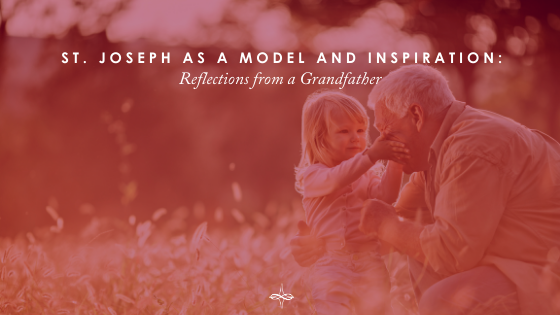
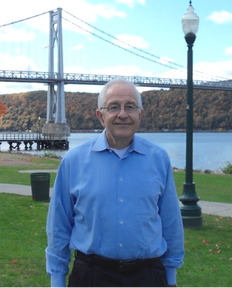
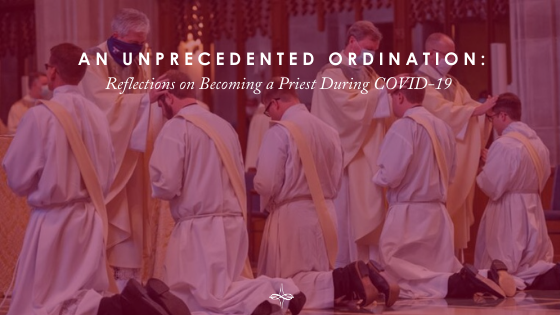
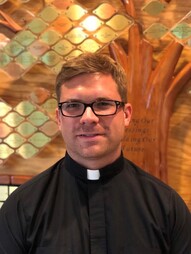
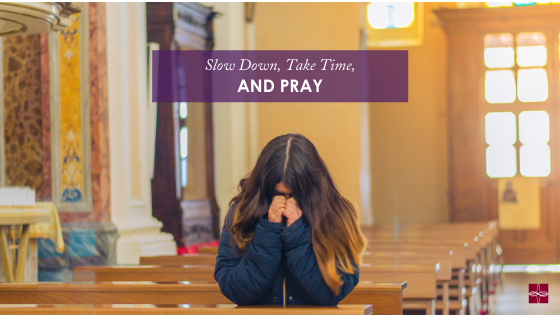

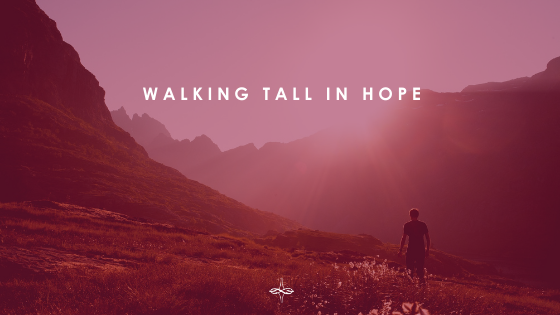

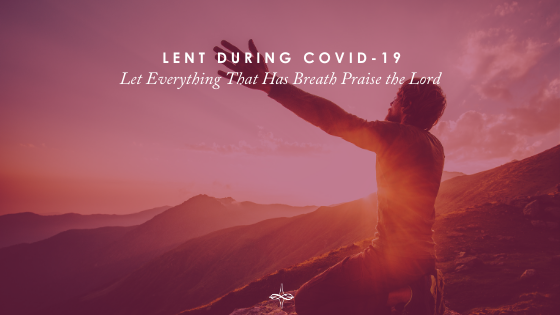
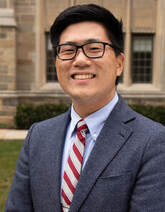
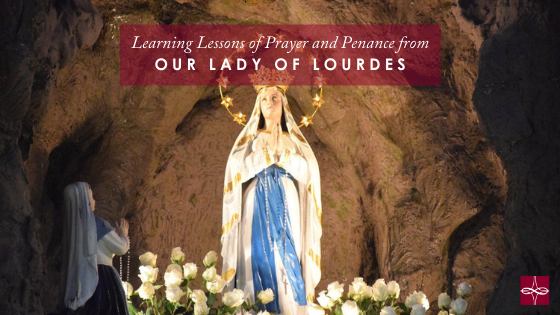

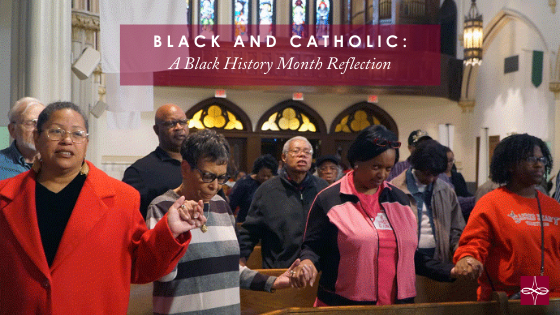
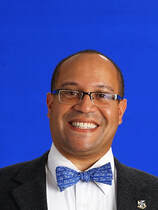
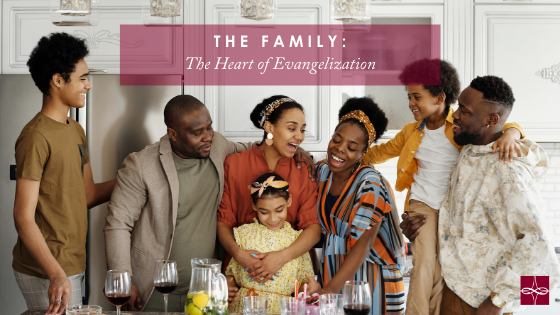
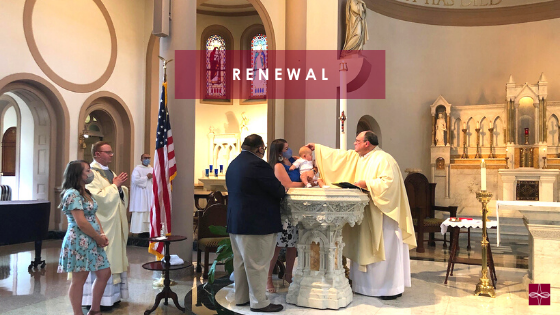
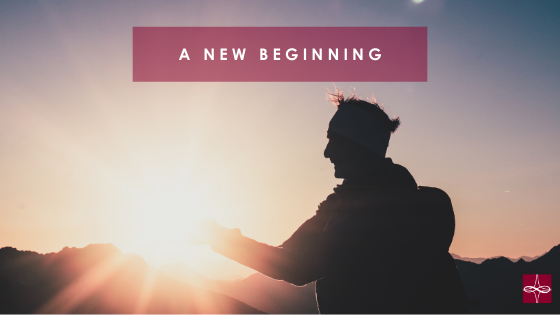

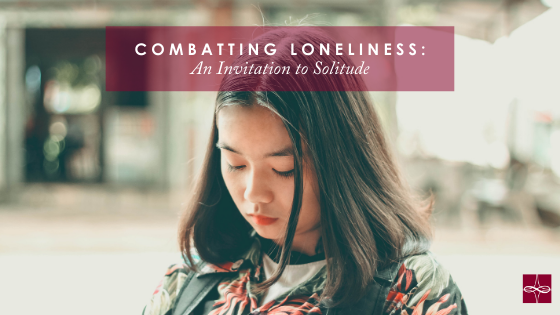

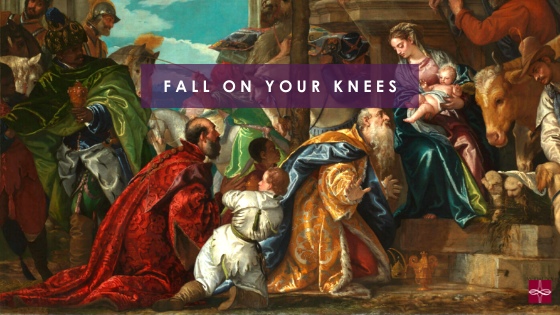

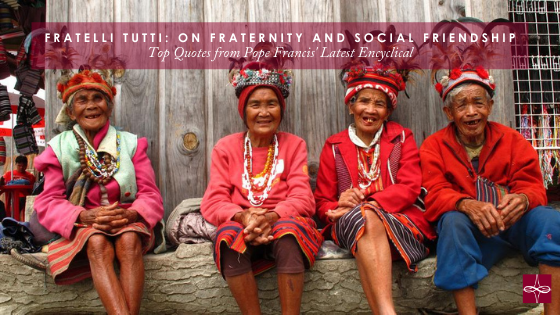
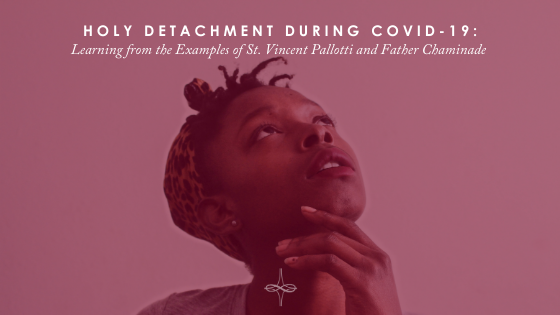
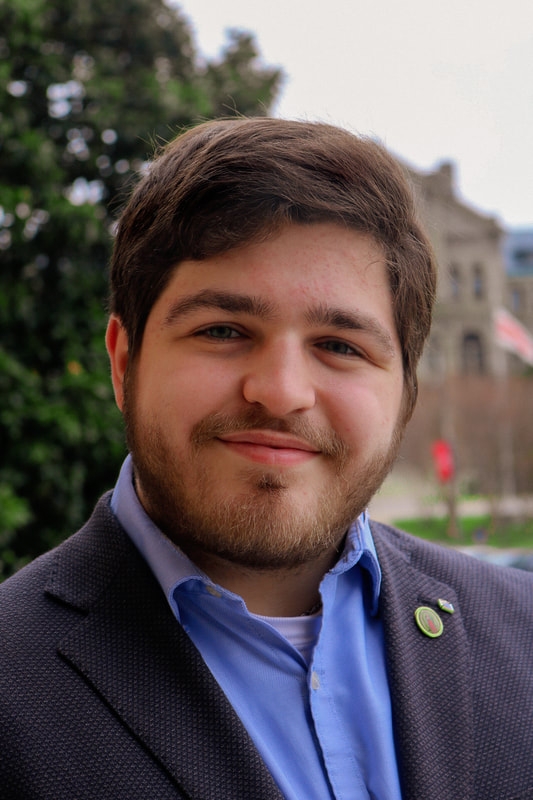
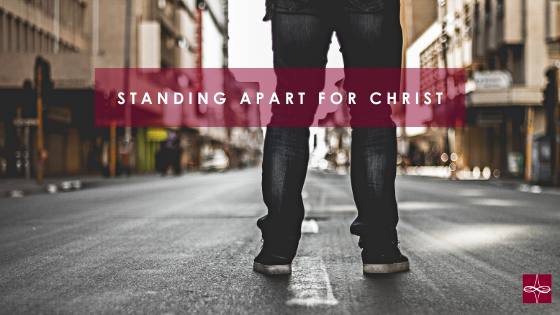

 RSS Feed
RSS Feed